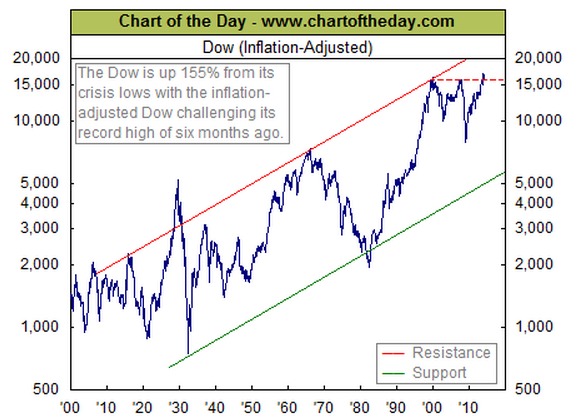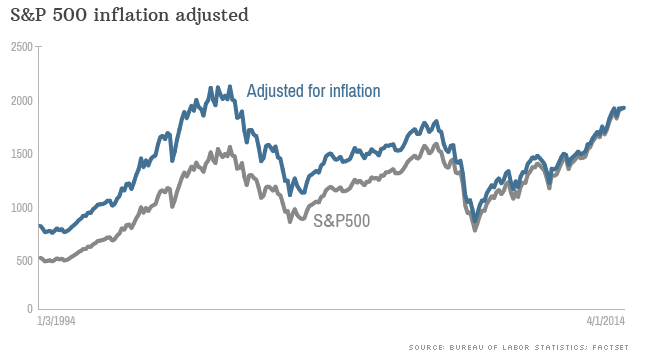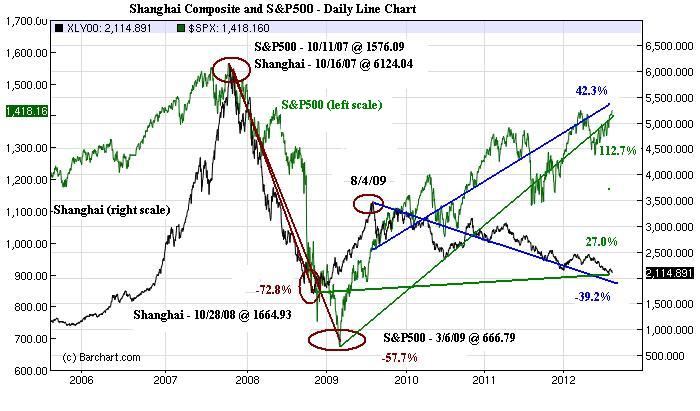The S&P 500 and Dow Jones Industrial Average both continue to set record highs as the economy and investor sentiment slowly improve more than five years after the financial crisis rattled global markets.
But is the stock market really at all-time highs? That depends on your perspective.
If investors use “nominal” index levels, then the answer is yes. Yet the matter becomes a bit murkier when investors adjust for inflation.
“Inflation-adjusted” performance sounds like an obscure term best left for the brainy economists. However, the metric is actually relevant to investors in the real world, and is something they should care about.
Let’s take a look at the Dow Jones Industrial Average, the granddaddy of U.S. stock benchmarks that launched way back in 1896.
The Dow is currently trading about 20% above the October 2007 closing high, before the credit crisis roiled global financial markets.
However, the picture is different when the Dow is adjusted for inflation. The chart below shows the inflation-adjusted Dow going back to 1900.
The inflation-adjusted Dow “trades only 3.2% above its 1999 all-time, inflation-adjusted record high,” according to chartoftheday.com. “On a positive note, the inflation-adjusted Dow has just punched through the 16,000 level — a level at which the Dow put in major peaks on its previous two attempts back in 1999 and 2007.”
Meanwhile, the S&P 500 is still below its inflation-adjusted high from the late 1990s.
But why should investors care about inflation-adjusted performance?
“Consider that $1 doesn’t buy as much as it used to — in the stock market or even at a fast food restaurant,” writes Ben Rooney for CNNMoney. “Thanks to inflation, you have to make more money today to be able to buy as much as you did a few years ago.”
On the bright side, investors are currently enjoying one of the strongest bull markets in history. Still, factoring in the corrosive effect of inflation puts things in perspective, since it’s all about the actual purchasing power of stock-market gains.
DISCLAIMER: The information in this material is not intended to be personalized financial advice and should not be solely relied on for making financial decisions. All investments involve risk, the amount of which may vary significantly. Past performance is no guarantee of future results.








